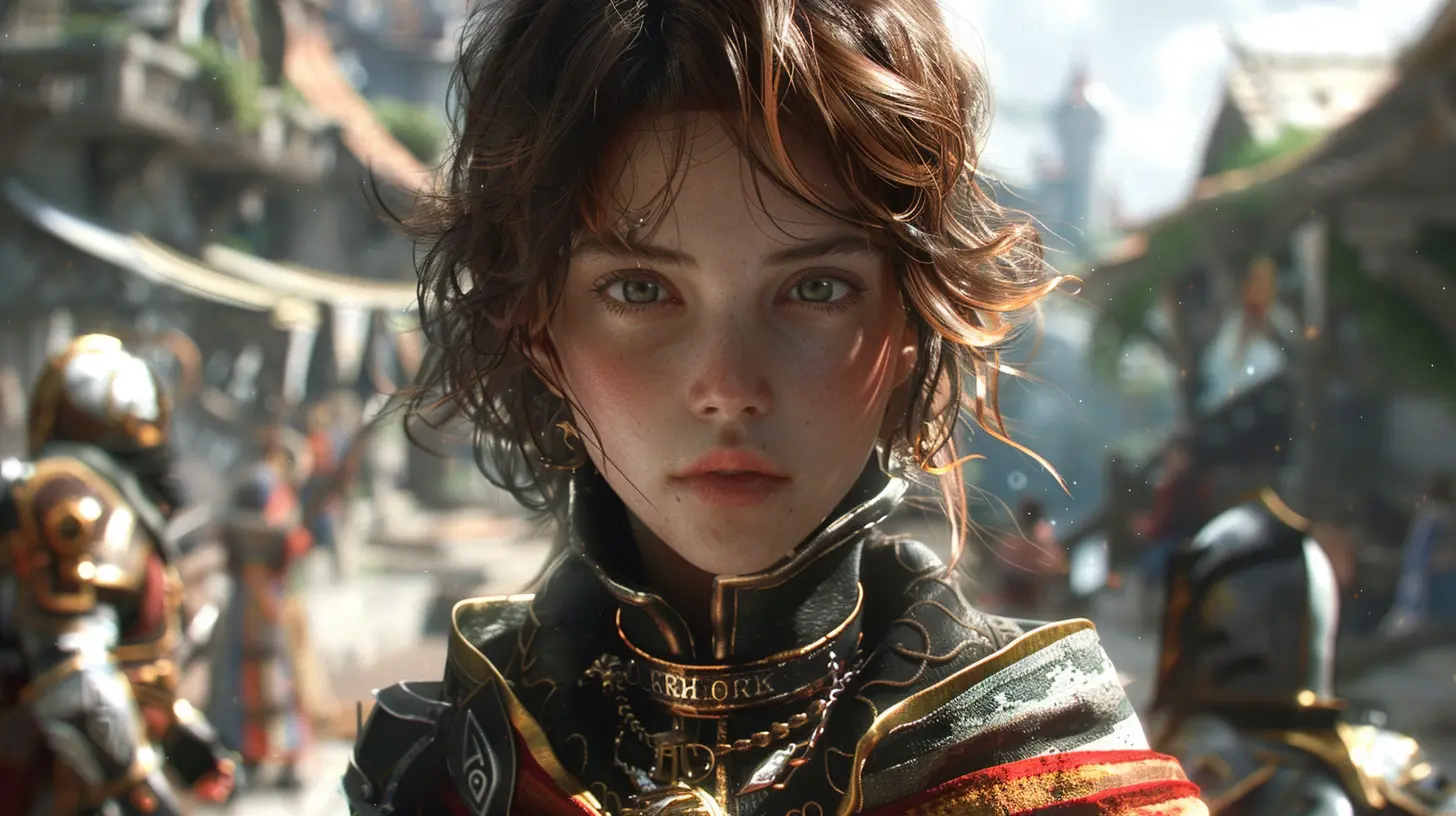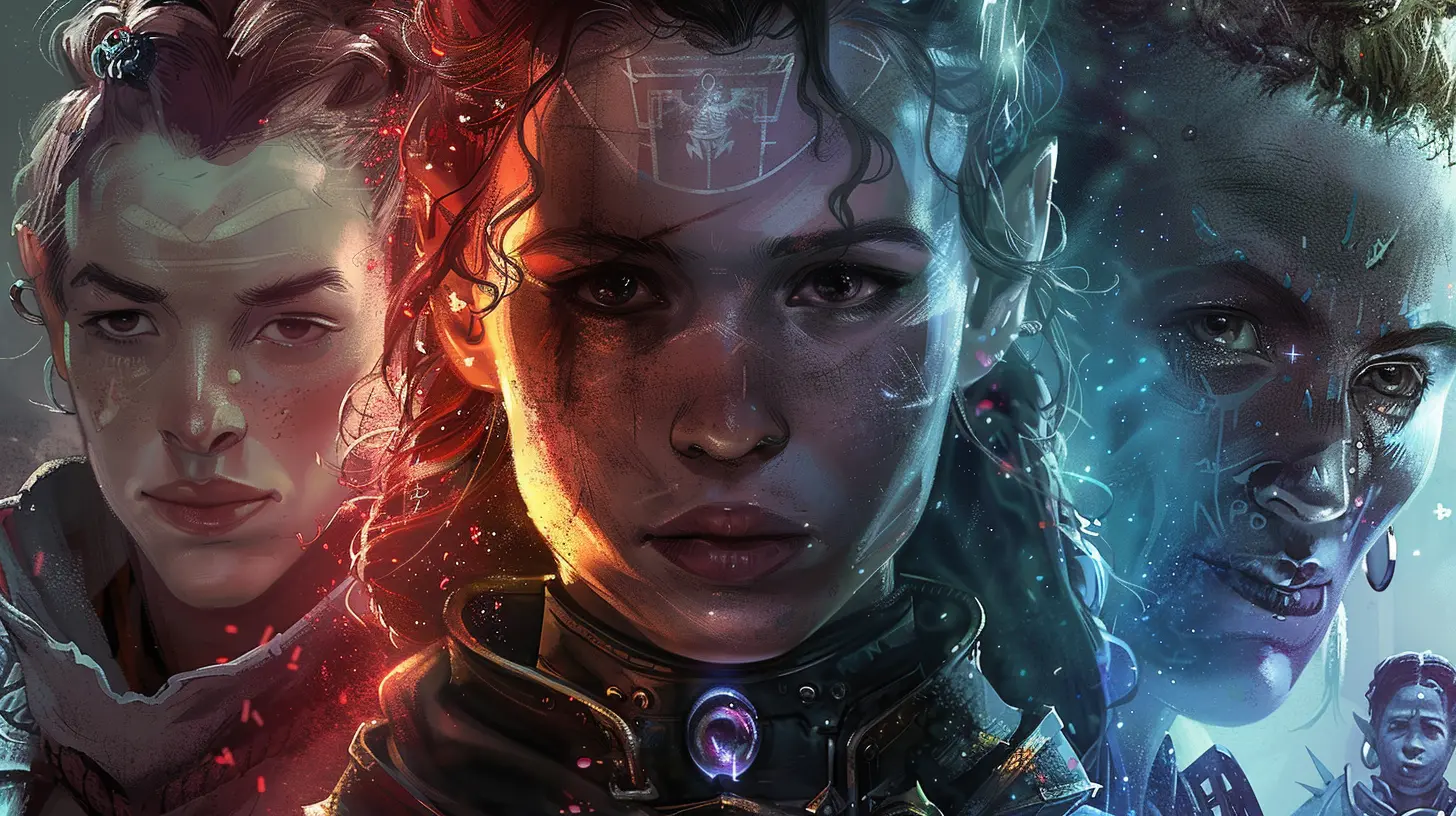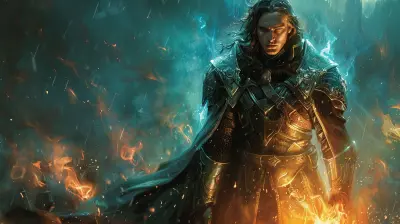How Voice Acting Changed the Face of RPGs
1 October 2025
Role-playing games (RPGs) have been around for decades, captivating players with their immersive worlds, intricate plots, and dynamic gameplay systems. But let’s be real for a moment—there’s a certain kind of magic that truly draws you into these worlds. That magic? It’s voice acting. Over the past few decades, voice acting has transformed the RPG genre, turning what were once text-heavy adventures into fully immersive experiences. How did we get here, and why does it matter so much? Let’s dive in and unpack just how voice acting changed the face of RPGs.
The Quiet Beginnings of RPGs
Back in the early days of RPGs, the storytelling relied primarily on text and pixelated images. Think about classics like Final Fantasy, Chrono Trigger, or Baldur’s Gate. They’re all legendary games, no doubt, but the only “voices” you’d hear were in your head as you read through dialogue boxes.For many gamers, this wasn’t necessarily a bad thing. Reading the text allowed people to imagine the characters’ voices the way they wanted. It was like reading a book with interactive elements, where you could craft the world in your mind. But this approach had its limits. Sure, a well-written story can do a lot, but hearing someone talk? Feeling their emotions? That hits differently.
The Turning Point: When Voices Entered the Scene
The introduction of voice acting to RPGs didn’t happen overnight. It was more like a slow evolution. Early attempts were… let’s just say, hit or miss. Remember the infamous voice acting in Resident Evil? Yeah, we’re all still laughing about the "Jill sandwich" line.But then, something happened. Developers started to get it right. Games like Final Fantasy X and The Elder Scrolls III: Morrowind took the plunge into fully voiced characters, and players started to notice just how much of a difference it made.
Voice acting gave characters dimension. Suddenly, they weren’t just words on a screen; they were real, breathing people with emotions, quirks, and personalities. Tidus and Yuna from Final Fantasy X weren’t just two kids trying to save their world; they became characters you could empathize with, laugh with, and cry for. This was a big deal—it was a game-changer (pun intended).
Why Voice Acting Resonates
Okay, let’s break it down. Why is voice acting such a big deal in RPGs? There are a few key reasons:1. Emotional Connection
Let’s start with the obvious one. When you hear a character’s voice, you feel their emotions in ways that text alone just can’t deliver. A soft tremble in their voice can convey fear, while a sarcastic tone can make you laugh out loud. Voice acting adds layers of complexity that help players bond with the characters. It’s like the difference between someone texting you, “I’m fine” and saying it with a shaky voice—one of those hits deeper, doesn’t it?2. Immersion
RPGs are all about immersion. You’re stepping into a world that’s often larger than life, and voice acting makes it feel more real. When NPCs (non-player characters) have distinct voices and accents, it feels like you’re navigating a living, breathing world. Think of The Witcher 3—every random villager, soldier, or merchant has their own voice, pulling you deeper into that gritty, medieval atmosphere.3. Accessibility
Here’s something we don’t always talk about, but voice acting also makes RPGs more accessible. Not everyone has the patience (or the ability) to read through walls of text. For players who may struggle with reading, hearing the dialogue instead of reading it makes a massive difference.4. Pacing
You ever read through a cutscene and wonder if you’re reading it too fast or too slow? Voice acting eliminates that guesswork. It creates a natural rhythm to the storytelling, keeping you in the moment without worrying about whether you skipped a line or lingered too long.
Iconic Moments in RPG Voice Acting
Voice acting in RPGs has given us some seriously iconic moments. Here’s a quick walk down memory lane:- “I’m Commander Shepard, and this is my favorite store on the Citadel” (Mass Effect series): A small, cheeky line, but it became a meme that cemented Shepard as a character with charm and personality.
- The Laugh Scene in Final Fantasy X: Yes, it was awkward, but that was the point. This scene sparked countless debates and memes, but it also showcased how voice acting can add layers to a character’s personality.
- Geralt of Rivia in The Witcher 3: Doug Cockle’s gruff, gravelly performance as Geralt gave the character a unique edge. Could you imagine reading Geralt’s lines in your head? Nah, me neither.
- Kreia’s Monologues in Star Wars: Knights of the Old Republic II: Sara Kestelman’s haunting performance as Kreia turned a wise mentor into one of RPG history’s most complex characters.
The Challenges of Voice Acting in RPGs
Okay, so voice acting has done amazing things, but let’s keep it real—it’s not always perfect. Sometimes, RPGs struggle with the sheer scale of their worlds. Voicing hundreds (or even thousands) of characters is a monumental task. You end up with situations where the same voice actor plays five different characters, and you’re like, “Wait, didn’t I just hear this guy?”There’s also the issue of localization. Translating dialogue into multiple languages while keeping the emotion intact is ridiculously hard. A poor voice-over can completely ruin the experience for non-English-speaking players. That said, the industry’s come a long way, and studios are investing big bucks to ensure high-quality performances across languages.
Voice Acting and Player Choice
Now, here’s an interesting twist: voice acting can complicate player-driven storytelling. RPGs are known for their branching dialogue and choices, but fully voicing all those possibilities? That’s a huge undertaking. Some developers, like Bioware in the Dragon Age series, have managed to integrate voiced protagonists without sacrificing player choice. Others, like The Elder Scrolls V: Skyrim, chose to keep the player character silent to allow for more dialogue freedom.Both approaches have their merits. A voiced protagonist can enhance the narrative, but a silent one gives players more room to project their own personality onto the character. It’s a balancing act, and there’s no one-size-fits-all solution.
The Future of Voice Acting in RPGs
Looking ahead, it’s clear that voice acting will only continue to evolve. With advancements in AI, we might see a future where NPCs have dynamic, reactive voice lines that adapt to your actions in ways we’ve never experienced before. Imagine an RPG where every character has unique, unscripted responses based on how you interact with them. It’s not as far-fetched as it sounds.Of course, nothing will ever replace the human touch. The raw emotion that a skilled voice actor brings to the table is something AI just can’t replicate (at least, not yet). Studios will likely continue to blend technology with human talent to create richer, more immersive experiences.
Wrapping It Up
Voice acting has undeniably changed the face of RPGs. It’s elevated storytelling, deepened emotional connections, and made these games more immersive than ever before. Sure, there are challenges, but the impact of voice acting on RPGs is undeniable. It’s no longer just about playing a game—it’s about living the story.So, the next time you hear a heartfelt monologue or laugh at a quirky NPC’s joke, take a moment to appreciate the voice talent behind it. After all, they’re the unsung heroes bringing these worlds to life.
all images in this post were generated using AI tools
Category:
Voice Acting In GamesAuthor:

Whitman Adams
Discussion
rate this article
1 comments
Kaitlin Lee
Voice acting has truly transformed RPGs, bringing characters to life and enhancing storytelling like never before! It connects players on a deeper emotional level, making adventures feel immersive and unforgettable. Let's celebrate the artistry behind this evolution and continue to explore the incredible worlds crafted by talented voices! Game on!
October 1, 2025 at 3:03 AM

Whitman Adams
Absolutely! Voice acting has revolutionized RPGs by deepening emotional connections and enriching storytelling, making each adventure truly memorable. Let's continue to appreciate and celebrate this artistic evolution!


